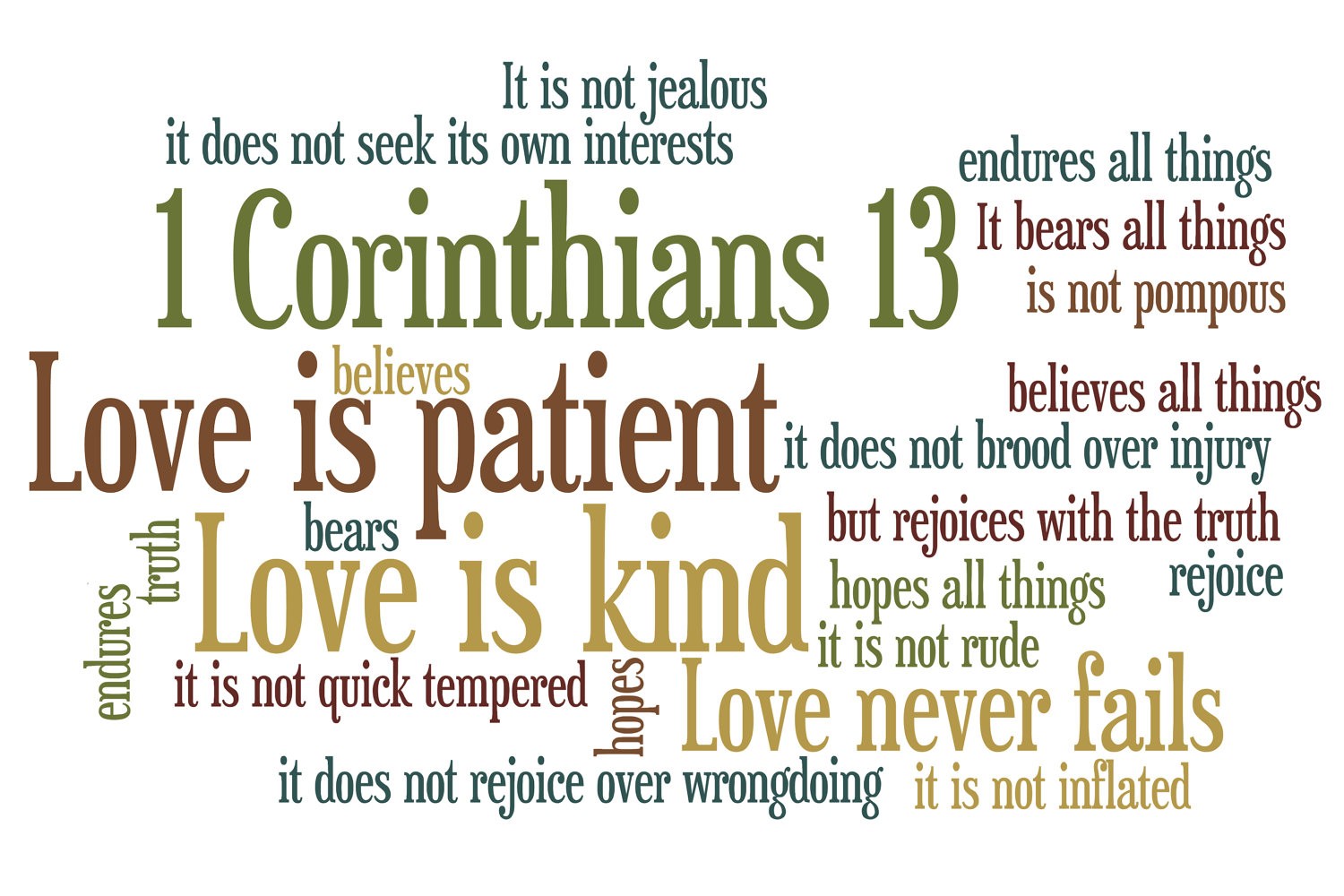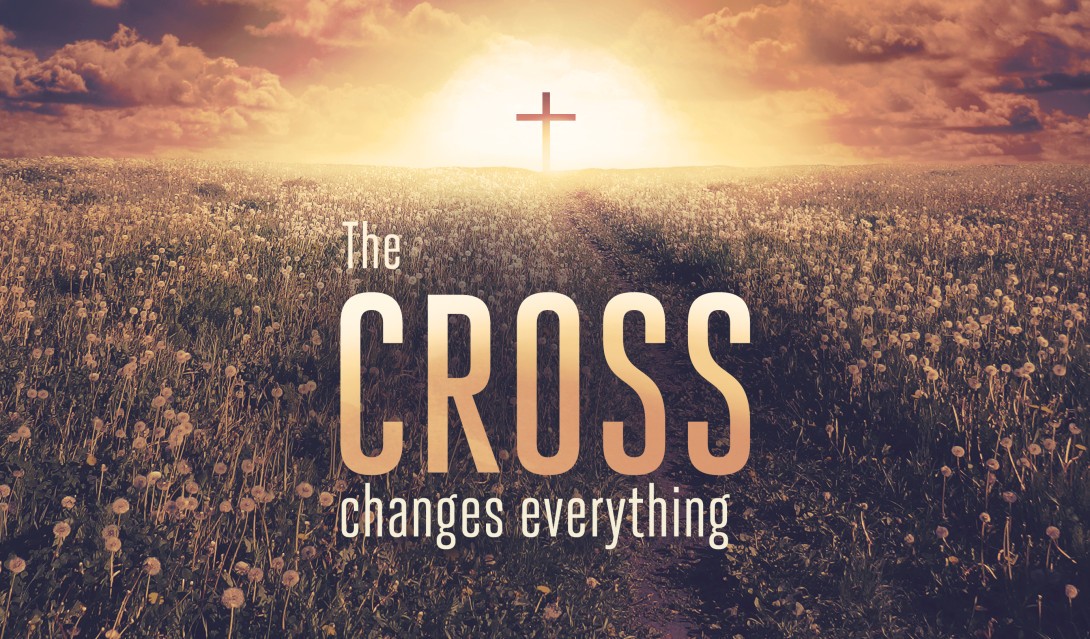BTC Phase 5: Lesson 1
Beauty of Prayer, Overview
Learn more about how Prayer and Meditation can become a natural part of our two-way communication with God as well as a way to serve others in His Name.
What is “Prayer”? By definition, “Prayer” is regarded as a “petition” or “request.” It can even represent “taking a chance” such as in the saying, “I might have a prayer.” However, with regard to our spiritual lives, most of us understand that the “act of praying” involves reaching out to God in order to let our needs be known; or perhaps we desire to just give thanks as we speak to Him.
So though most of us view “prayer time” as a chance to “talk to God,” it has also been said that prayer is not just the act of “informing God of what is in our heart” (since He likely already knows), but a moment when we might quiet ourselves enough to align our hearts and minds to the awesome love and power which God “Is,” often bringing about a sense of peace just by lingering in God’s presence. Many say that even the act of forming the words to pray seems to help with the process of sorting things through, re-establishing priorities, or re-discovering a sense of trust and hope regarding a given situation.
“Be not ye therefore like unto them: for your Father knoweth what things ye have need of, before ye ask him.” Matthew 6:8 (KJV)
Silently or out loud: We can pray through silent communication known only to God or we can speak our hearts out loud. We can write our thoughts and feelings down in a personal journal or we can enjoy sharing our prayer time with others.
Open and Honest: Whatever method we choose, what’s really important here is that we are honest and open before God when we pray. Since God is Spirit and the essence of Pure Love and Light, we have an opportunity with prayer to “come up higher” and closer to that Light; but this will not happen if our prayers are a sort of “performance” before others or if we are mouthing things which may or may not be a sincere representation of what is really in our hearts. Of course, there are times when we do repeat traditional prayers such as “The Our Father” (The Lord’s Prayer) which would be more of a recitation, however even then, we can reflect on the meaning of the words as we pray and add our unique perspective and feelings to the experience.
So, isn’t it good to know that we can come before God just as we are, and speak honestly as we would to any good friend we trust?
When and where can we pray? Many folks in the Body enjoy setting aside special time each day to sit and commune with God. For instance, some of us prefer to schedule prayer time in the morning as we start our day or in the evening before we retire. This helps us to establish ourselves “in the Spirit,” as we build on our relationship with the Father, day by day.
Of course, prayer is always a part of services held at churches; and for those times when we feel the need for extra support, there are beautiful souls ready to take our phone calls and pray with us through the medium of various ministry “Prayer Lines.” But, prayer can actually take place anywhere or any time we feel the desire to “connect” with the love of God or to make our requests known to the Father.
About praying in public: Some in the Body believe that public demonstrations of prayer should be included in all situations whether onlookers approve or not. Though these believers would be “ardent,” which is notable, there is still more to consider.
To begin with, there is a difference between being ashamed of Christ and simply wanting to take things one step at a time with people who have never really had the opportunity to learn what Jesus actually teaches. In addition, many contemporary sources of information and media portray Christians in an uninformed way, so we need to make sure that our demonstrations of “faith” are accompanied by “fruit,” since we certainly do not want to contribute to the confusion because of how we might have failed to treat others with respect, especially just after having prayed in public.
Fruit for Dinner? I will give you an example. In our travels some years ago, my husband and I were shocked to learn that Sunday is one of the most dreaded times to work, that is, for those in retail or in the restaurant business. This is apparently due to the behavior of a certain, regular clientele who have become known in the hospitality industry as “church people.” What? Why?
Though the workers who shared their thoughts with us came from different parts of the region and from different establishments, the stories were similar. Reports were that many of the “Sunday after church crowd” could be notably rude, demanding, and hard to please, often leaving a big mess at the table as well as in the restrooms. Then to add insult to injury, far too often they would leave only a tiny tip or “forget” to leave one altogether. Yet, they would hold hands and pray with piety before consuming their food, and, oh yes… some of course, refused an offer of beer or wine with dinner, since they would pride themselves in “never drinking,” or so they will say.
But wait! What was that thing that Paul said to Timothy about adding a little wine to prevent infirmities?
“Drink no longer water, but use a little wine for thy stomach’s sake and thine often infirmities.” 1 Timothy 5:23 (KJV)
Since water represents Mercy and wine represents our New Covenant of Grace, could this verse of Scripture be pointing to more than a dietary change? In Timothy’s case, he had seen problems erupt in his church due to having placed members into positions of leadership too quickly. Thus, Paul was advising him of what soul-condition members should have, of knowing how to operate in Mercy and Grace prior to being ordained and put into public service.
“Lay hands suddenly on no man, neither be partaker of other men’s sins: keep thyself pure.” 1 Timothy 5:21 (KJV)
On Being a Witness: Considering that “The Witness” is the Spirit in us (whether we speak about our faith with words or not), shouldn’t all of us walk in Mercy as we hold to Grace everywhere we go, especially in situations where we are identified as “Christians,” and especially if we represent “Christian leadership?” We might be quick to introduce ourselves as “Pastor, Bishop, Elder, Evangelist So and So,” but with that, are we equally as fast in honoring those around us?
The word, “Christian,” implies that we have a goal of becoming Christ-like; so, with that comes the responsibility to remain connected to the Spirit in order to increase the chances that we will be demonstrating “Fruit of the Spirit,” as well as “Godly Wisdom.”
“And it is the Spirit that beareth witness, because the Spirit is truth.” 1 John 5:6 (KJV)
In the final analysis, wouldn’t it be better then, to let others see some actual “Fruit of the Spirit” in us prior to interjecting matters of our Christian culture into the equation? Once folks experience the love of God through us, then our public prayers stand a greater chance of being understood in a positive light. We are here to serve others and as long as our motive is that of love, as already mentioned…the Spirit can lead us in what we are to do or say that will minister to others in any given situation.
Praying in the Spirit: To understand what “Praying in the Spirit” means, let’s look at this verse from Ephesians:
“Praying always with all prayer and supplication in the Spirit, and watching thereunto with all perseverance and supplication for all saints.” Ephesians 6:18 (KJV)
In this Scripture, we are being directed to pray for one another, of course. But more specifically, we are being encouraged to do so, “in the Spirit.” So, what does this mean? If we take this advice at face value, we are being told we should connect with Christ within when making our needs known to God, but also, to allow the two-way communication to take place by remaining open to what Spirit tells us in those moments as well.
Now, let’s look at the next verse of Ephesians where we see this from Paul:
“And for me, that utterance may be given unto me, that I may open my mouth boldly, to make known the mystery of the gospel, For which I am an ambassador in bonds: that therein I may speak boldly, as I ought to speak.” Ephesians 6:19 (KJV)
It appears that Paul is asking for the Spirit to direct his speaking, a practice (and prayer) which we could all benefit from and which others who would hear us, could also gain from.
This is similar in nature to these verses in Scripture that describe how we of the “New” would be able to worship one day because of our ongoing relationship with the Spirit:
“But the hour cometh, and now is, when the true worshippers shall worship the Father in spirit and in truth: for the Father seeketh such to worship him. God is a Spirit: and they that worship him must worship him in spirit and in truth.” John 4:24 (KJV)
Those who initially heard this teaching from John 4 may have wondered what Jesus was talking about, since the Spirit had not yet been given until after Jesus departed bodily; thus, we see “But the hour cometh” pointing to a future time when such a quality of prayer would be introduced into our experience.
We know now, however, that this moment of which Jesus spoke, was to be The Day of Pentecost, after which all of us would have the opportunity to go way beyond the reciting of words, or just talking to God because all souls who encounter “The Promise” can most certainly abide in the fullness of Grace when praying as well as in all ways that love for God is expressed in thought, word, song, and deed, that is…for those who “mind the Spirit,” or “walk after the Spirit,” as Paul would say (see Romans 8:1, KJV).
Praying in Tongues: Taking the matter of “Praying in the Spirit” one step further, we hear the expression, “Praying in Tongues” among some in the Body. We also hear, “Speaking in Tongues.” So what is all that about? Let’s look at 1 Corinthians, Chapter 14 to begin to understand:
“Follow after charity, and desire spiritual gifts, but rather that ye may prophesy. For he that speaketh in an unknown tongue speaketh not unto men, but unto God: for no man understandeth him; howbeit in the spirit he speaketh mysteries.” 1 Corinthians 14:1-2 (KJV)
In these first verses of Chapter 14, we find out that “speaking in unknown tongues” is connected to “spiritual gifts.” So what are these?
Some think of “The Gifts” as being evidence that the Spirit dwells within us, or you could say that the “Gifts” come with having “The Gift” which is Grace. Our Bible tells that when we receive the Spirit at the 2nd aspect of our Baptism, we gain “Gifts,” such as the ability to discern on a deeper level, or we might develop a special healing touch, or we might discover that we have a kind of sixth sense also known as a gift of prophecy. Some Gifts are given to a few and some given to all; but the reason for having the Gifts work through us is to help one another in the Body.
According to 1 Corinthians 14:1-2, “Speaking in unknown tongues,” is on the list of what can manifest through someone upon receiving the Spirit. We see this take place in Acts:
“While Peter yet spake these words, the Holy Ghost fell on all them which heard the word. And they of the circumcision which believed were astonished, as many as came with Peter, because that on the Gentiles also was poured out the gift of the Holy Ghost. For they heard them speak with tongues, and magnify God. Then answered Peter, Can any man forbid water, that these should not be baptized, which have received the Holy Ghost as well as we? And he commanded them to be baptized in the name of the Lord.” Acts 10: 44-48 (KJV)
So “speaking in tongues” is a phenomenon which can take place with some in which the feelings of overwhelm from the Holy Ghost are so profound that one gives voice to utterances which are not of human language, but understood by God.
Charity is Key in sharing The Gifts: 1 Corinthians gives us a wealth of information with regard to “Gifts,” and their proper use; but as for speaking in tongues, we also learn that it should be tied to a heart of charity. OK, so how does the charity aspect play out?
“Yet in the church I had rather speak five words with my understanding, that by my voice I might teach others also, than ten thousand words in an unknown tongue.” 1 Corinthians 14:19 (KJV)
Here, Paul is concluding his commentary on the subject by saying that what must remain in our heart (and be our motive) when operating from Spiritual Gifts is the desire to help others. So the apostle suggests that in our asking to operate in the Gifts, that we first we pray for a way to help one another best, and of course we know that we can trust God with what He brings as an answer to our prayer. (See 1 Corinthians 14:1-2, KJV)
Our Commandment in “The New” is based on Love: In verse 26 of this same Chapter (1 Corinthians 14), Paul says, “When ye come together, every one of you hath a psalm, hath a doctrine, hath a tongue, hath a revelation, hath an interpretation. Let all things be done unto edifying.” Once again, the apostle stresses that we are to encourage one another or “edify” each other with what we bring to the gathering. After all, what “spirit” would be operational if we were to lose sight of the reason why we have been given “Gifts?”
So, though it is understandable that at times, one can experience communing with God in the Spirit in such a profound way that “utterances from the Spirit” might occur, when this happens we are not to forbid this in any gathering; but we are to bear in mind that whatever we share of “The Gifts,” we should do so with love and care to help each other along throughout this process of spiritual transformation.
“Wherefore, brethren, covet to prophesy, and forbid not to speak with tongues.” 1 Corinthians 14:39 (KJV)
To God be the Glory: There will be more about the subject of Spiritual Gifts later in our BTC Course, but for now, let’s just add here, that if we have Gifts that operate through us as a result of our connection to the Holy Spirit, then it is to the credit of God that this occurs. So before we get too impressed with ourselves if He uses us to minister to someone…Yes, God can do this; but we also see in Numbers 22 that God used a donkey to get a message across to Balaam.
So, we can have a spiritual “Gift” because of having received the Spirit, yet to be spiritual ourselves, we must continuously “mind the Spirit” toward becoming “spiritual in nature.” It is wisdom to keep those issues separate.
In other words, if God chooses to help someone by allowing a display (through us) of Godly Knowledge, Wisdom, or Healing for instance, we are to give the thanks to God. Meanwhile, we must persist on the path of submitting to our transformation (which is our nature change via the Spirit from carnal to spiritual), keeping in mind that “evidence of the Spirit in us” does not always indicate that we ourselves have a spiritual nature (yet). But certainly, the Gifts are given to help us attain and retain a spiritual nature; they are also a demonstration of the Mercy of God at work to support us day by day.
“Let all things be done decently and in order.” 1 Corinthians 14:39-40 (KJV)
Prayer “In passing”: Apart from the many structured or planned ways that we can experience prayer in our lives, there may be other spontaneous opportunities all throughout our day, to lift folks up in prayer as we encounter them and their situations. We might also find that the Holy Ghost (as a leading, guiding, and empowering element of God) will bring certain people to mind in a given moment, and we can pause right then and there to lift them up as well.
Strolling through the aisles of grocery stores, navigating through traffic or walking the dog through the neighborhood…we don’t know when we might spot someone who could use a little prayer, even if we will never actually “meet” that person or speak to them directly.
Drive-by prayer: Let’s say… one day while we are out running our errands, we spot a mom struggling to manage her kids at the shopping mall or…here’s a common one…we find ourselves trying to stay out of the way of someone driving too fast or tailgating.
Rather than rushing to judgment about these people or rather than just reacting or falling into a programmed response in those situations, we do have the option to pray for these folks.
What if we stumble across a couple engaged in an argument? We can always offer up a prayer on their behalf. On other occasions, we might become aware of someone who perhaps does not fit the profile of anything we readily understand; for instance, we might find ourselves in line somewhere, right next to a radically tattooed and pierced teenager who seems to be living in another world. Well, any time we “sense” that someone could use guidance or assistance, or if we believe that we could use a little help managing a situation better ourselves…we can just pray “that all concerned will be led to the fulfillment of God’s plan for our lives.” Who knows? It may be that the teenager will be praying for us as we stand there praying for them. Appearances don’t always tell the whole story.
Standing in the Gap: What a great feeling it is to know that as we pray…in a sense, we are working with God to affect positive change, even if it may or may not be given to us to help in other ways. At any moment, we can stand in the gap and intervene for someone, knowing that this seemingly small action represents one more way to express love.
More opportunities for prayer: Now let’s look at some other opportunities for prayer that might come about in less obvious ways, perhaps even in mysterious ways.
Have you ever started thinking of a particular person out of the blue and maybe you just carried on with your day; yet, the thought of this person kept returning several times? Could this “phenomenon” represent one of God’s ways of bringing someone to our attention that stands in need of prayer at that very moment? If there are many people, yet One Spirit of God that we share, then why wouldn’t the Father nudge us with an “intuition” about the concerns of another?
Many of us have heard amazing stories about “answered prayer,” from simple needs being met to more dramatic situations such as a rescue at the scene of a disaster. But for today, I will share this example from my own life.
One morning while in the middle of office work, I felt a strong “inner tap” on my shoulder to stop what I was doing and pray earnestly for a certain woman who I knew was sick with cancer. I had been aware of her illness for many months; but that morning I felt led to pray “that she might be able to release some hurt which she had been carrying in her heart over certain unfulfilled dreams. “So without allowing my mind to start second guessing this experience…I just prayed for her to know forgiveness, peace, and joy. Later that day I received a phone call and learned that this soul had passed away right at the hour I felt led to pray. I was stunned and shaken with the seriousness of what had just taken place, and I was also amazed at God’s awesome mercy… that He would find “ways” to minister to His children, while including others of us in these tender moments…that we might witness His love in action.
With tears of gratitude, I gave thanks to the Father that I was able to share that moment “In Spirit” with her. I had no idea that things were that imminent and of course, I can’t know for sure, exactly how my prayers may have helped. But I am certain about this…. by all means, we must keep accepting each and every opportunity to pray for others and for ourselves, knowing that these gifts of time and love will somehow work for the good.
Meditation: It has been said, that “prayer is when we speak to God and meditation is when we listen for God to speak to our hearts.” So, in conjunction with actual Prayer, we can also meditate or “listen” and “contemplate” what “input” or inspiration we believe we are receiving. Another way of saying all of this… is that it is one thing to communicate our feelings, our thanks, and needs to God, and it is another to take time to rest in His Peace and listen for a “leading” or message of inspiration from Him.
Keeping the best… letting go of the rest: So, in addition to praying, meditation can be a lovely opportunity to “get to know” levels of peace which might be harder to access in the middle of our busy lives, since included in being able to meditate comes learning how to relax or practicing being in a more relaxed state.
The Art of Relaxation: One relaxation technique that I have always found helpful is to focus on the breath as it moves slowly in and out of the Body, relaxing a little more with each exhale. It can be enjoyable and helpful to also have soft music or nature sounds playing in the background. As thoughts and feelings come up, we can in a sense, “keep the best” as we inhale, while “letting go of the rest” with each exhale.
Some folks like to write down what comes to mind in a journal, while others just rest. A short nap can be delicious and restorative as well. Taking time to relax can help us face the rest of our day with a more calm and peaceful demeanor. Believe it or not, even the “art of relaxation” is a skill which becomes easier over time with practice.
Visualization: Beyond praying “about” something or someone, there are many folks who find it beneficial to spend a few moments “visualizing a positive outcome” to a challenging situation in life. Visualization is routinely practiced by professionals such as athletes or artistic performers; and folks experienced with visualization suggest that any of us can move closer to the fulfillment of our goals by “seeing” ourselves for a few minutes each day, already functioning joyfully in the desired situation.
So, the idea is, that we can project to the future in great detail, and paint the picture of ourselves celebrating with others, what “will be” our victory, our miracle, or accomplishment, even if we do not know for sure “how” this could all come to pass.
So how does this work? Well, if the word “visualization” makes you nervous…don’t panic… as this phenomenon isn’t “magic” since science has actually been able to measure the effect that our projected thoughts and emotions can have on our environment. Therefore it is no “wonder” that visualization could help induce a preferred outcome. In the very least, visualization has the potential to build confidence within us regarding our future. It also stands to reason that a more relaxed state brought about by prayer, meditation, and visualization, can help us become “open” to receiving solutions or creative ideas that might move us closer to “real-izing” our goals or heart’s desires.
“Seek ye first the Kingdom of God, and His Righteousness; and all these things shall be added unto you.” Matthew 6:33 (KJV)
Seeking First the Kingdom of God: However, before embarking on the process of visualization regarding a challenge, it is also wise to seek God and His Spirit as to the appropriateness of the particular aspiration we have in mind. The flesh nature has its “desires” and the New Nature by the Spirit will have other motivations. As we “mind the Spirit” or mature in the Spirit, our desires will mature as well. So as we walk with God, what we might have dreamed about or wanted at one point in our life, can change, which is actually a natural part of the process of growing up spiritually.
“Not my will, but thine, be done.” Luke 22:42 (KJV)
The Holy Spirit can provide guidance and direction for our lives if we remain open, which in turn can help us join our “will” with God’s. The longer we walk with the Spirit, the more we will naturally desire those things which are in our spiritual “best interest.”
The Prayer Closet: Some people benefit from having a special corner of their home or office dedicated to prayer and meditation. This place can be very simple, such as a comfortable chair facing a view of a garden or tree. This personal area can be decorated with a few items which may have inspirational significance. But wherever you pick for a spot or whatever you place around you in your special “space,” the idea is that when you are there, you can more easily focus your mind and heart on God, to reconnect quickly to a spiritual place of safety and peace. By the way, in addition to selecting beautiful items to place around your “prayer space”…the inclusion of music and Scripture passages (or other inspirational literature) during prayer time can also be soothing to the heart and soul, while helping the meditator to “get into the zone.”
The Ultimate Prayer Closet: The marvelous truth about the concept of a “Prayer Closet” is, that there may or may not be an actual “closet” or “little place” involved; whatever we do on the outside, is to situate us or help us to focus our mind and heart so we might have a deeper experience on the inside of us. In the end, nothing decorative is really required for that. All we need for a Prayer Closet is our love and our faithfulness, from wherever we happen to be when the desire to pray comes over us.
When I think of Paul, praising God while standing in filth and human waste as a prisoner in jail, I am reminded that the transformed soul, in becoming One in consciousness with God, is able to commune with the Father always… and under all circumstances….Now that’s…a “Prayer Closet” and a goal for our soul to accomplish, by the Grace of God.
But back to our little chapel, many of us are fortunate indeed, to be able to choose where or how we want to pray or meditate, since many in the world have no “civil” liberties (or any other kind of liberty), which would allow freedom to express love of God. So while we enjoy our prayer time, we can offer up a special word for those who are suffering persecution or who have no safe-haven within which to practice their faith; and we thank God for the blessing of prayer and those special moments of communion with Him.
BTC Lessons are written by Ann M. Wolf © 2018, All rights reserved.






